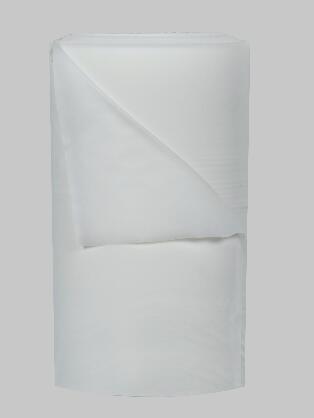In the realm of versatile and high-performance films, both Thermoplastic Polyurethane (TPU) and Polyurethane (PU) films have gained prominence across diverse industries. These films, known for their exceptional properties and applications, often lead to confusion due to their similar-sounding acronyms. In this article, we delve into the distinctions between TPU film and PU film, shedding light on their unique characteristics and the sectors they cater to.
Understanding TPU Film:

Thermoplastic Polyurethane (TPU) film is a type of polymer material that exhibits a remarkable blend of flexibility, durability, and chemical resistance. TPU is a class of polyurethane plastics known for their processability under elevated temperatures. TPU films are created through a manufacturing process that involves melting the polymer and then forming it into a film.
Key Characteristics of TPU Film:
Flexibility: TPU films are highly flexible, making them suitable for applications that require materials to conform to various shapes or movement.
Durability: TPU films are renowned for their durability, with the ability to withstand wear, tear, and abrasion, making them ideal for industries with demanding conditions.
Transparency and Clarity: TPU films can be manufactured with excellent transparency and clarity, making them suitable for applications where visual aesthetics are essential.
Elasticity: TPU films offer good elastic properties, allowing them to return to their original shape after being stretched or deformed.
Resistance to Chemicals and Oils: TPU films have a high resistance to various chemicals, oils, and solvents, which extends their lifespan and enhances their utility in challenging environments.
Applications of TPU Film:
TPU films find applications across a wide range of industries:
Textiles and Apparel: TPU film is used for waterproof and breathable fabrics in outdoor clothing, sportswear, and footwear.
Automotive: TPU films are utilized for automotive interior components, such as seat covers and airbags.
Electronics: TPU films provide protection for electronic devices against moisture, dust, and impact.
Medical: TPU films are used in medical applications like wound dressings, surgical drapes, and inflatable medical devices.
Sports Equipment: TPU films contribute to the durability and performance of sports equipment such as inflatable balls and protective gear.
Deciphering PU Film:
Polyurethane (PU) film, on the other hand, is a versatile material derived from the polymerization of isocyanates and polyols. PU films are generally known for their elastomeric and thermoplastic properties. They are produced by casting, extrusion, or calendaring processes, depending on the desired characteristics.
Key Characteristics of PU Film:
Elastomeric Nature: PU films possess elastomeric qualities, which means they have rubber-like elasticity and flexibility.
Adhesive Properties: PU films can be manufactured with adhesive backing, allowing them to be used for bonding various materials.
Versatility: PU films come in various formulations, making them suitable for applications requiring different levels of softness, hardness, or stretchability.
Sound and Vibration Dampening: PU films are often used for sound and vibration dampening in automotive and industrial applications.
Weather Resistance: PU films exhibit good resistance to weathering and environmental factors, making them suitable for outdoor applications.
Applications of PU Film:
PU films find a wide range of applications across industries:
Automotive: PU films are used for automotive interior parts, gaskets, seals, and weather-resistant components.
Footwear: PU films are utilized for shoe soles, uppers, and insoles, providing comfort and durability.
Packaging: PU films are used in flexible packaging for food, pharmaceuticals, and consumer goods.
Industrial: PU films find use in industrial applications such as seals, gaskets, and protective covers.
Decorative Laminates: PU films with decorative finishes are used for laminates in furniture and interiors.
In Conclusion:
While TPU film and PU film might share similar origins, their distinct properties and applications set them apart. TPU film boasts exceptional flexibility and chemical resistance, making it ideal for industries requiring durability and elasticity. On the other hand, PU film's elastomeric nature and adhesive properties offer a broader spectrum of applications, from automotive to industrial sectors. Recognizing these differences empowers industries to make informed decisions when selecting the most suitable film for their specific needs. We are a TPU film supplier. If you are interested in our products, please contact us now!



Comments
All Comments (0)